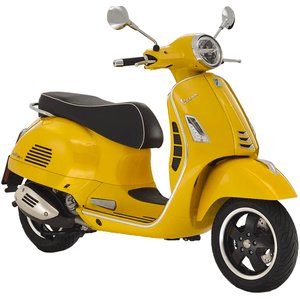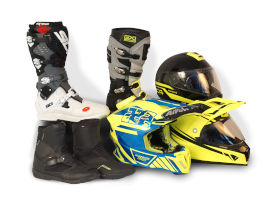Vespa GTS 300 (2019–2021) Review: A Timeless Icon Meets Modern Performance
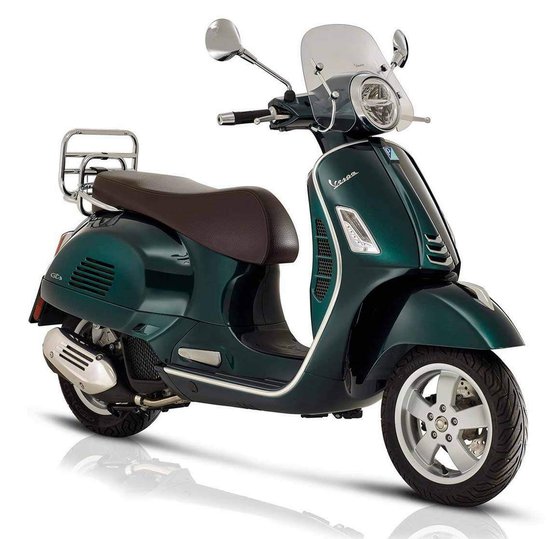
Introduction
The Vespa GTS 300 isn’t just a scooter—it’s a cultural artifact. For riders who crave a blend of Italian elegance, urban practicality, and peppy performance, the 2019–2021 GTS 300 generation stands out as a refined evolution of Vespa’s legacy. Designed for city commuters and weekend adventurers alike, this model iteration introduced significant upgrades, including the High Performance Engine (HPE), advanced connectivity, and Euro 5 compliance. Having spent time with several variants—from the tech-loaded SuperTech to the touring-ready GTS Touring—I’ll break down what makes this generation a standout in the crowded maxi-scooter segment.
Design & Build Quality: La Dolce Vita on Two Wheels
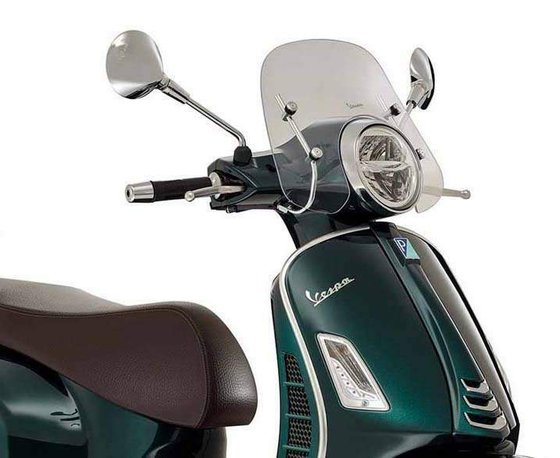
The Vespa GTS 300’s design is a masterclass in balancing heritage with modernity. Its monocoque steel frame retains the iconic curves that have defined Vespa since 1946, but updates like full-LED lighting and sleek color options (e.g., Grigio Dolomiti matte gray or Verde Relax green) keep it looking fresh. The 2021 75th Anniversary Limited Edition, with its metallic yellow paint and chrome accents, exemplifies Vespa’s ability to turn heads without sacrificing functionality.
Ergonomics are tailored for comfort: the 790 mm (31.1") seat height suits riders of most statures, while the redesigned saddle on models like the SuperSport offers plush support for longer rides. Practical touches include a USB port inside the glove compartment and underseat storage (fitting a full-face helmet on some trims). The Touring variant adds a windscreen and rear rack, enhancing its touring credentials without cluttering the silhouette.
Performance: Small Displacement, Big Personality
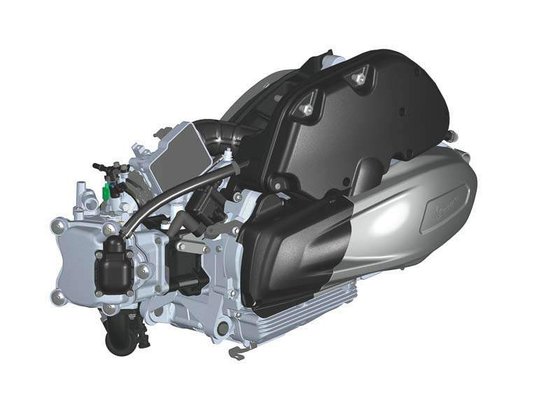
At the heart of the GTS 300 lies the 278cc HPE engine, a liquid-cooled, single-cylinder powerhouse delivering 23.8 HP @ 8,250 RPM and 26 Nm (19.2 lb-ft) of torque @ 5,250 RPM. These numbers might seem modest, but the real-world experience is anything but. The engine’s revised combustion chamber and iridium spark plug ensure crisp throttle response, propelling the scooter to a top speed of 128 km/h (80 mph)—enough for highway sprints.
The CVT transmission is butter-smooth, with a “torque server” that minimizes belt slippage during acceleration. In city traffic, the GTS feels zippy and responsive, while the engine remains surprisingly quiet thanks to sound-dampening upgrades. Fuel efficiency is stellar: 3.21 L/100 km (73.3 mpg) means fewer stops at the pump, even during spirited rides.
Riding Experience: Agility Meets Comfort

Vespa’s 12-inch wheels and short 1,375 mm (54.1") wheelbase make the GTS 300 incredibly nimble. Weaving through traffic feels effortless, and the front suspension’s single-arm design absorbs potholes better than rivals with telescopic forks. The rear suspension’s 4-position preload adjustment (on ABS models) lets you tailor the ride for solo commutes or two-up touring.
Braking is confident, with 220 mm hydraulic discs front and rear, paired with dual-channel ABS. Traction control on later models adds security on wet roads. At 158–160 kg (348–352 lbs), the GTS isn’t featherweight, but its low center of gravity inspires confidence during U-turns or parking-lot maneuvers.
Technology & Features: Smart Scootering

The 2019–2021 updates brought the GTS into the digital age. The 4.3-inch TFT display (standard on SuperTech) is a highlight, offering smartphone connectivity via Vespa MIA. Pair your phone for turn-by-turn navigation, music control, and call management—all without taking your hands off the grips. Analog purists can stick with the classic dash, which still includes a digital fuel gauge and temperature readout.
Other niceties include:
- Traction control (2020–2021 models)
- Keyless ignition (optional on SuperTech)
- LED daytime running lights
- Anti-theft immobilizer
Competition: How Does the GTS 300 Stack Up?
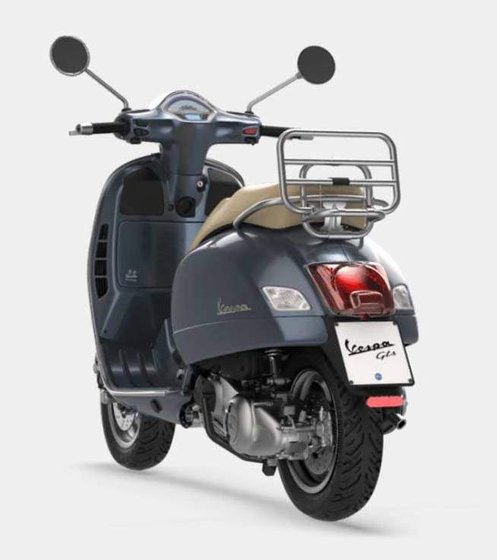
The maxi-scooter segment is fiercely competitive. Here’s how the Vespa holds its ground:
- Yamaha XMAX 300: More powerful (28 HP) and tech-heavy, but lacks the Vespa’s retro charm.
- Honda Forza 350: Offers superior storage and wind protection, but feels bulkier in tight spaces.
- BMW C 400 X: Premium pricing buys you a sportier ride, but maintenance costs are higher.
The Vespa’s edge lies in its brand cachet and timeless design. While rivals prioritize utility, the GTS 300 appeals to riders who view their scooter as an extension of their personality.
Maintenance: Keeping Your Vespa in Prime Shape
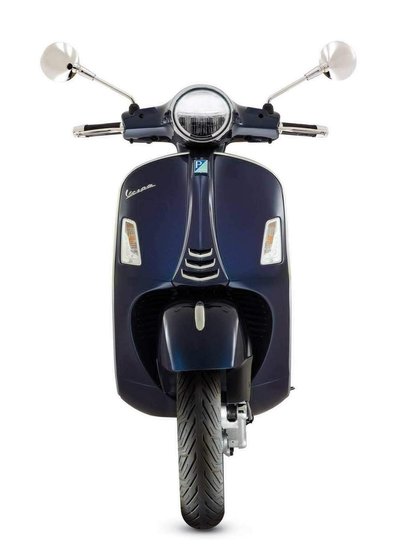
The GTS 300 is notoriously reliable, but adherence to service intervals is key:
- Engine Oil: Use SAE 5W-40 API SL (1.3L with filter). Change every 6,000 km (3,700 mi).
- Belt Drive: Inspect every 12,000 km (7,500 mi). Consider upgrading to a high-performance aftermarket belt for smoother acceleration.
- Coolant: Replace every 2 years or 24,000 km (15,000 mi). Capacity: ~2.1L.
- Tire Pressure: Front 1.8 bar (26 psi), Rear 2.0–2.2 bar (29–32 psi).
Pro Tip: The rear shock’s preload adjuster lets you fine-tune the ride for cargo or passengers. MOTOPARTS.store offers premium shock upgrades for riders seeking even more customization.
Final Thoughts
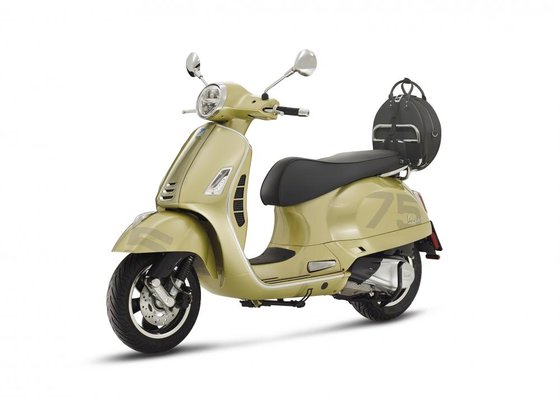
The 2019–2021 Vespa GTS 300 is a scooter that transcends its category. It’s a statement piece that happens to be practical, a commuter tool that begs to be ridden for pleasure. Whether you’re drawn to the Touring’s long-haul comfort or the SuperTech’s digital flair, this generation proves Vespa can innovate without losing its soul.
For owners looking to personalize their GTS, MOTOPARTS.store stocks everything from chrome accessories to performance exhausts—because even an icon deserves a touch of individuality.
Ciao for now, and happy riding!







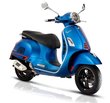



Specifications sheet
| Engine | |
|---|---|
| Stroke: | Four-stroke |
| Max power: | 17 kW | 23.0 hp |
| Max torque: | 26 Nm |
| Fuel system: | Electronic fuel injection (EFI) |
| Max power @: | 8250 rpm |
| Displacement: | 278 ccm |
| Max torque @: | 5250 rpm |
| Bore x stroke: | 75.0 x 63.0 mm (3.0 x 2.5 in) |
| Configuration: | Single |
| Cooling system: | Liquid |
| Compression ratio: | 11.0:1 (estimated) |
| Emission standard: | Euro 5 |
| Number of cylinders: | 1 |
| Valves per cylinder: | 4 |
| Dimensions | |
|---|---|
| Wheelbase: | 1375 mm (54.1 in) |
| Dry weight: | 158 |
| Seat height: | 790 mm (31.1 in) |
| Overall width: | 755 mm (29.7 in) |
| Overall height: | 1375 mm (54.1 in) |
| Overall length: | 1950 mm (76.8 in) |
| Fuel tank capacity: | 8.5 L (2.25 US gal) |
| Drivetrain | |
|---|---|
| Clutch: | Automatic dry centrifugal |
| Final drive: | belt |
| Transmission: | CVT automatic with torque server |
| Maintenance | |
|---|---|
| Engine oil: | 5W40 |
| Brake fluid: | DOT 4 |
| Spark plugs: | NGK MR7BI-8 |
| Final drive oil: | 250 ml 80W-90 GL-4 |
| Coolant capacity: | 2.1 |
| Engine oil capacity: | 1.3 |
| Engine oil change interval: | Every 5000 km or 2 years |
| Valve clearance (intake, cold): | 0.10–0.20 mm |
| Valve clearance check interval: | 24,000 km |
| Valve clearance (exhaust, cold): | 0.20–0.30 mm |
| Recommended tire pressure (rear): | 2.0 bar (29 psi) solo, 2.2 bar (32 psi) with passenger |
| Recommended tire pressure (front): | 1.8 bar (26 psi) |
| Additional Features | |
|---|---|
| Storage: | Underseat compartment |
| Lighting: | Full-LED system |
| Warranty: | 2 years, unlimited mileage |
| Safety systems: | ABS, traction control (ASR) |
| Instrumentation: | 4.3" TFT display (SuperTech model) |
| Chassis and Suspension | |
|---|---|
| Frame: | Sheet steel shell with welded structural reinforcements |
| Rear tire: | 130/70-12 |
| Front tire: | 120/70-12 |
| Rear brakes: | Single 220 mm disc, ABS |
| Front brakes: | Single 220 mm disc, ABS |
| Rear suspension: | Double hydraulic shock absorber with 4-position preload adjustment |
| Front suspension: | Single arm with hydraulic shock absorber |



